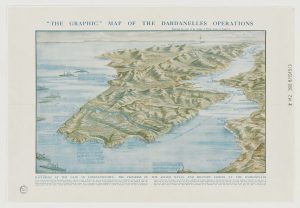
Finest Hour 169
Cohen’s Corner – Howard’s End: Misquoting Churchill on Cuba

Winston Churchill, Parliament Square, London © Sue Lowry & Magellan PR
November 10, 2015
Finest Hour 169, Summer 2015
Page 24
By Ronald I. Cohen
Ronald I. Cohen is President of the Sir Winston Churchill Society of Ottawa. In 2014 he was awarded the MBE for services to history, including A Bibliography of the Writings of Sir Winston Churchill.
Winston Churchill remains a source of frequently quoted quips and aphorisms. Most of the best of these can be found in Richard Langworth’s Churchill in His Own Words (2012). Of course many more quotations than ever passed his lips are attributed to Churchill because they were wise, clever, humorous or witty, or simply sounded like words he would have spoken. These may have a longer or more credible life if attached to him.

2025 International Churchill Conference
Often, misattributed quotations are simply clever or amusing and do no further harm. The Winston-Nancy Astor “poison in your coffee” exchange is a delightful example. Occasionally, though, a genuine quotation is wrongfully, apparently purposefully, but at best carelessly, adapted to say something very different from what Churchill intended.
Howard Zinn, who died in 2010, wrote the extremely successful A People’s History of the United States, which was first published in 1980 and last revised in 2005. As of this date, more than two million copies have reportedly been sold. Consequently, we can expect that what Zinn attributed to Churchill in that book has been read by many. Writing about the Cuban insurrection, Zinn said (at p. 303):
There seems also to have been another kind of fear. The Cleveland administration said a Cuban victory might lead to “the establishment of a white and a black republic,” since Cuba had a mixture of the two races. And the black republic might be dominant.
With the apparent intention of bolstering his argument, Zinn enlisted a young reporter on the conflict, who had become rather better known by the time Zinn’s work was published:
The idea was expressed in 1896 in an article in The Saturday Review by a young and eloquent imperialist, whose mother was American and whose father was English—Winston Churchill. He wrote that while Spanish rule was bad and the rebels had the support of the people, it would be better for Spain to keep control:
A grave danger represents itself. Two-fifths of the insurgents in the field are negroes. These men…would, in the event of success, demand a predominant share in the government of the country…the result being, after years of fighting, another black republic.
A diligent father, Ted Schwartz, recently contacted The Churchill Centre to say Zinn’s book “was assigned as summer reading as part of my son’s high school U.S. history class.” Concerned as Schwartz was by the foregoing extract, he sought the full text of Churchill’s article from TCC. He was right to do so.
The full article was included in the scarce, four-volume Collected Essays, which is an excellent source for Churchill’s periodical contributions, but, having itself been edited in the compilation exercise, ultimately needs verification against the originally published text. Doing so in this case reveals that the text of the relevant portion of the 15 February 1896 article (Cohen C2) is radically different from Zinn’s cited text.
In Zinn’s version of Churchill’s report, there are two ellipses. The excisions amount to thirty-two words, a good number of which are material and ought not to have been excised at all. In addition, though—with no literary excuse or justification—Zinn misleadingly dropped another twenty-five words without alerting the reader that he had done so. Here is the original Churchillian text with all the Zinn-excised portions italicized and the undisclosed excised words also bold-faced:
A grave [graver in the original] danger presents [represents in the Zinn version] itself. Two-fifth of the insurgents in the field, and by far the bravest and best disciplined part of the rebel forces, are pure negroes. These men, with Antonio Maceo at their head, would, in the event of success, demand a predominant share in the government of the country. Such a claim would be indignantly resisted by the white section, and a racial war, probably conducted with bitter animosity and ferocious cruelty, would ensue, the result being, after years of fighting, another black republic, or at best a partition of the island as in San Domingo.
In other words, of the original ninety-nine word text, Zinn only used forty-two words, arguably seriously distorting Churchill’s original intentions. His distortion is greater yet, when one considers that he has totally ignored the paragraph in the Saturday Review piece that preceded the (mis)quoted paragraph, as it sets the context for Churchill’s fundamental view regarding the important role of what he hoped would be a predominant Spain following the Cuban revolution.
…The rebel victory offers little good either to the world in general or to Cuba in particular. With Cuba as a Spanish colony, Spain is responsible for its behaviour toward foreign States and its respect of international law; but with “Cuba Libra,” instead of dealing with a traditional friendly Power, we should have to prepare ourselves for another irresponsible firebrand of the South American type. That is not an inviting prospect for the outside world; nor does independence offer much to the islanders themselves. All impartial residents in the island are agreed that, though the Spanish Administration is bad, a Cuban Government would be worse—equally corrupt, more capricious and far less stable. Under such a Government revolutions would be periodic, property insecure, equity unknown.
Good for Ted Schwartz for noticing the unlikely Churchillian content and for bringing it to TCC’s attention. Too bad that none of the other two million purchasers of Zinn’s book are aware of this unjustifiable misquotation.
Subscribe
WANT MORE?
Get the Churchill Bulletin delivered to your inbox once a month.




